Tucked away in the northeastern corner of France lies a region where wine flows like the Rhine River – Alsace. As the sun-kissed vineyards stretch out beneath the watchful eye of the Vosges Mountains, a symphony of flavors awaits those who seek to explore the secrets of Alsace wines.
From the delicate floral notes of Gewürztraminer to the crisp acidity of Riesling, each sip tells a story of tradition and innovation. But what sets these wines apart? Stay tuned to uncover the unique characteristics and timeless allure of Alsace wines that will captivate your palate and imagination alike.
Key Points
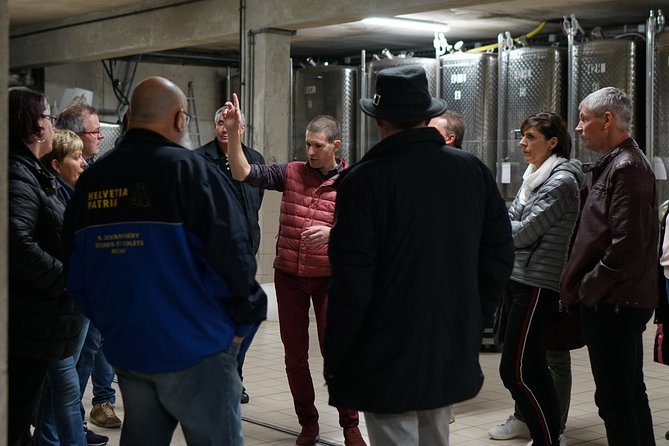
- Alsace wines showcase diverse grape varieties with unique flavors influenced by the region’s terroir.
- The Alsace wine region boasts a classification system that emphasizes quality, transparency, and the distinctiveness of each wine.
- Wine enthusiasts can enhance their tasting experience by understanding Alsace appellations, colors, aromas, acidity, and body.
- Pairing Alsace wines with the right dishes, such as seafood, spicy cuisine, creamy pasta, or fresh cheeses, elevates the overall enjoyment.
Alsace Wine Region Overview
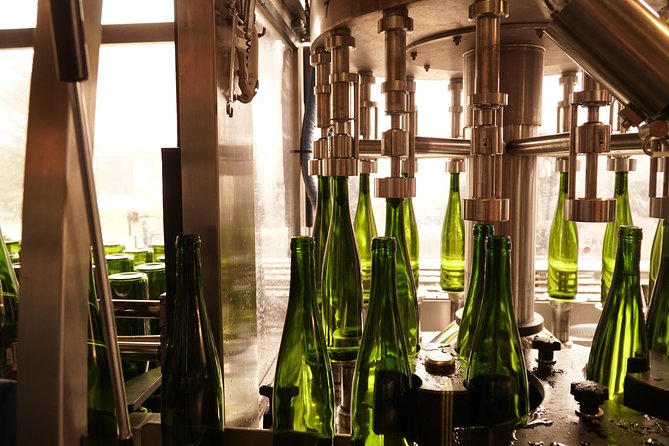
Nestled in the northeastern corner of France, the Alsace wine region boasts a rich tapestry of vineyards producing some of the most exquisite wines in the world. The region isn’t only renowned for its exceptional wines but also for its thriving wine tourism industry.
Visitors flock to Alsace to experience the picturesque vineyards, charming wine villages, and world-class wineries. The unique climate impact in Alsace, characterized by dry and sunny weather with cool nights, contributes to the distinctive quality of the wines produced here. This climate, influenced by the Vosges Mountains, allows for the ideal ripening conditions for the grapes, resulting in wines with exceptional flavor profiles and complexity.
Wine enthusiasts and travelers alike are drawn to Alsace to savor the fruits of this exceptional terroir.
You can also read our reviews of more tours and experiences in Colmar.
Grape Varieties in Alsace Wines
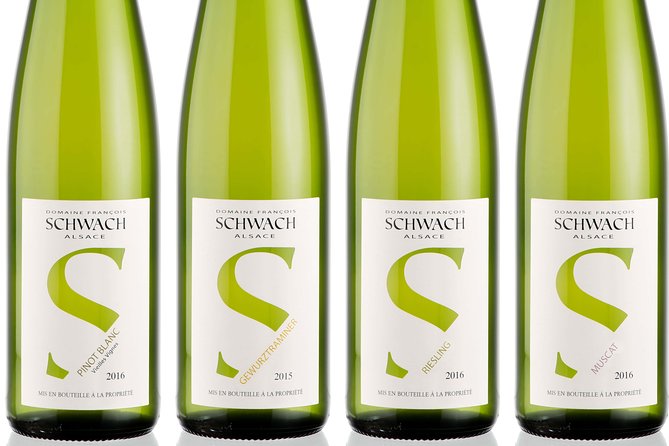
In the enchanting Alsace wine region, a diverse array of grape varieties flourish, each contributing its unique characteristics to the renowned wines produced here.
- Riesling: Known for its aromatic nature and high acidity, thriving in the region’s cool climate.
- Gewürztraminer: Exhibiting exotic aromas and a full-bodied texture, influenced by Alsace’s sunny slopes.
- Pinot Gris: Developing rich, full-bodied wines due to the region’s varied soil compositions.
- Muscat: Producing floral and fruity wines, influenced by Alsace’s drier climate.
The climate impact and soil composition in Alsace play pivotal roles in shaping the distinct flavors and profiles of these grape varieties, offering wine enthusiasts a diverse and captivating tasting experience.
Terroir Influence on Alsace Wines
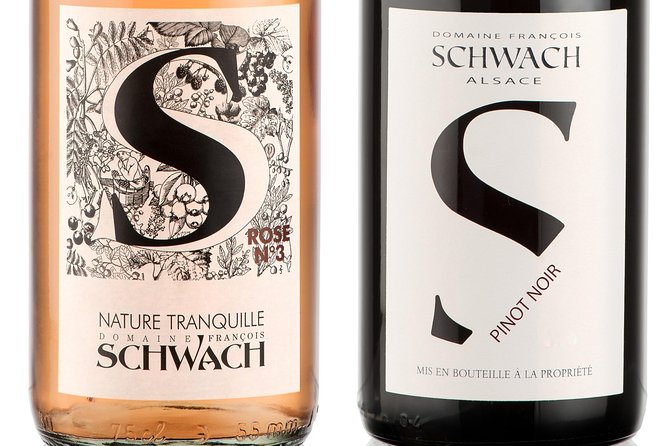
The diverse terroir of the Alsace region profoundly influences the character and quality of its wines, creating a unique expression of each vineyard’s distinct environment. The climate impact, with its cool temperatures and sunny days, plays a crucial role in shaping the grapes grown in Alsace.
The region’s continental climate, sheltered by the Vosges Mountains, allows for a long growing season, ideal for producing aromatic and well-balanced wines. Plus, the soil composition, characterized by a mosaic of different types including granite, limestone, and marl, imparts specific mineral nuances to the wines.
These varying soil types contribute to the complexity and individuality of Alsace wines, reflecting the diverse terroir that shapes this renowned wine region.
Alsace Wine Classification System
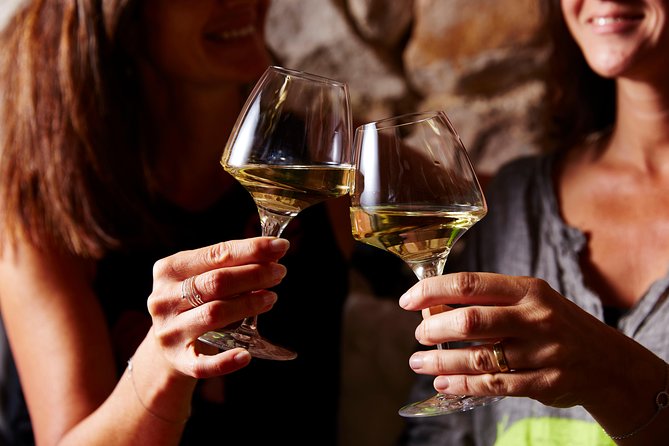
The distinctive Alsace Wine Classification System categorizes wines based on the grape variety used, emphasizing transparency and highlighting the region’s commitment to showcasing the unique characteristics of each wine.
-
Alsace Wine Styles: The classification system includes Alsace Grand Cru, representing the region’s best vineyards and producing high-quality wines.
-
Grape Varieties: Regulations dictate which grape varieties can be used in Alsace wines, with Riesling, Gewürztraminer, Pinot Gris, and Muscat being some of the prominent ones.
-
Quality Levels: Wines are classified into different quality levels, such as Vendanges Tardives (late harvest) and Sélection de Grains Nobles (selection of noble grapes), based on specific criteria.
-
Labeling Requirements: Alsace wine regulations ensure that labels provide clear information about the wine’s origin, grape variety, and vintage, aiding consumers in making informed choices.
Alsace Wine Tasting Tips
Unlock the secrets of savoring Alsace wines with expert tasting tips that elevate your wine experience to new heights. When exploring Alsace varietals through wine tourism, understanding tasting techniques is key to appreciating the nuances of each glass.
Begin by familiarizing yourself with the Alsace appellations, which showcase the region’s diverse terroir and grape varieties. Start your tasting journey by observing the wine’s color and clarity, then move on to inhaling the aromatic notes that hint at the wine’s complexity.
Take a sip and let the flavors dance on your palate, noting the acidity, sweetness, and body of the wine. By paying attention to these details, you’ll be able to fully learn about the rich tapestry of Alsace wines.
- Alsace 4 Wonders Small-Group Day Trip From Colmar
- Through Alsace Vineyards and Wine Villages Private Bike Tour
- Skip the Line: Toy Museum Colmar Admission Ticket
- Alsace Villages Half Day Tour From Colmar
- Alsace Wineries Private Half- or Full-Day Tour From Colmar
- Private Tour: Alsace Wine Tasting Day Trip From Colmar
Food Pairing With Alsace Wines
Set out on a culinary journey through the vibrant flavors of Alsace wines with expertly paired dishes that enhance your tasting experience. When it comes to food pairing with Alsace wines, here are some tasting notes to guide you:
-
Riesling: This wine’s acidity and minerality complement seafood dishes like oysters or shrimp scampi.
-
Gewürztraminer: With its aromatic and slightly sweet profile, this wine pairs beautifully with spicy Asian cuisine.
-
Pinot Gris: The rich texture and hints of spice in Pinot Gris make it a great match for creamy pasta dishes or poultry.
-
Pinot Blanc: Its crisp and refreshing nature makes it an excellent choice to accompany light salads or fresh cheeses.
Explore these combinations to elevate your Alsace wine tasting experience.
Sustainable Practices in Alsace Vineyards
Exploring beyond the realm of food pairings, the sustainable practices employed in Alsace vineyards showcase a harmonious blend of tradition and innovation, preserving the rich terroir for future generations.
Organic farming and biodynamic viticulture are key pillars in these vineyards, emphasizing the importance of natural processes and biodiversity.
In response to the challenges posed by climate change, Alsace vineyards have implemented various sustainability initiatives to mitigate environmental impact and adapt to evolving conditions.
Trends in Alsace Wine Industry
In the dynamic Alsace wine industry, innovative trends are reshaping traditional practices and captivating the palates of wine enthusiasts worldwide.
-
Biodynamic Winemaking: More producers are transitioning to biodynamic practices, emphasizing organic farming methods and lunar cycles to enhance grape quality.
-
Single Vineyard Expressions: Wineries are focusing on showcasing the unique terroir of single vineyards, allowing consumers to experience the distinct characteristics of different plots.
-
Eco-Friendly Packaging: To meet the growing demand for sustainability, many Alsace wineries are embracing eco-friendly packaging options such as lightweight bottles and recycled materials.
-
Revival of Indigenous Varietals: There’s a resurgence of interest in indigenous grape varieties like Sylvaner and Gewürztraminer, reflecting consumer preferences for authentic, local wines.
Common questions
Can Visitors Bring Their Own Wine Glasses to the Tasting Event?
Visitors can enhance their tasting experience by bringing personalized wine glasses. Understanding glass etiquette and tasting preferences allows guests to tailor their experience. Wine accessories are welcomed to elevate the experience and create a unique tasting atmosphere.
Is There a Minimum Age Requirement for Participants in the Introduction to Alsace Wines Event?
Participants must meet the minimum age requirement for the event. Bringing personal wine glasses to the tasting is not permitted. Enjoy the experience with provided glassware. Domaine Francois Schwach ensures a memorable and inclusive wine tasting.
Are There Any Specific Dress Code Recommendations for the Tasting Experience?
There are no specific dress code recommendations for the tasting experience. Participants should aim for comfortable attire. Tasting etiquette suggests sipping, not gulping. Wine glass etiquette advises holding the glass by the stem. BYO policy may not be applicable.
Is There a Store On-Site Where Attendees Can Purchase Alsace Wines After the Tasting Session?
Attendees can enjoy a diverse wine selection during the tasting session. Buying options include purchasing Alsace wines on-site after the event. This provides a convenient opportunity for participants to take home their favorite wines.
Are There Any Special Discounts or Promotions Available for Group Bookings of the Introduction to Alsace Wines Event?
Group discounts and promotional offers are available for the Introduction to Alsace wines event. Engage with Domaine Francois Schwach to inquire about special rates for booking as a group. Enjoy savings while exploring the world of Alsace wines.
Final Words
To sum it up, the ‘Introduction to Alsace Wines’ offers a captivating journey into the world of exquisite wines. From the diverse grape varieties to the unique terroir influence, participants are treated to a sensory experience like no other.
With a focus on education, tasting tips, and sustainable practices, this tour provides a well-rounded understanding and appreciation of Alsace wines.
Indulge in this immersive experience and discover the beauty and complexity of wines from this enchanting region.
More Tour Reviews in Colmar
Not for you? Here's more nearby things to do in Colmar we have reviewed
- From Colmar: Alsace Medieval and Wine Tasting Day Tour
- Riquewihr: Private Guided Walking Tour
- Basel Airport to Basel – Arrival Private Transfer
- Alsaces Gems Small Group Day Tour From Colmar
- Colmar:Self Guided Scavenger Hunt
- Colmar : Outdoor Escape Game Robbery In The City
- Winegrower Walk
- Alsace Wine Route and Village Tour From Colmar
- Colmar Small-Group Instagram Photo Walking Tour
- Colmar: Insta-Perfect Walk With a Local
- Colmar: Chocolate Creation Workshop at Choco-Story
- Colmar: Highlights Walking Tour and Wine Tasting
